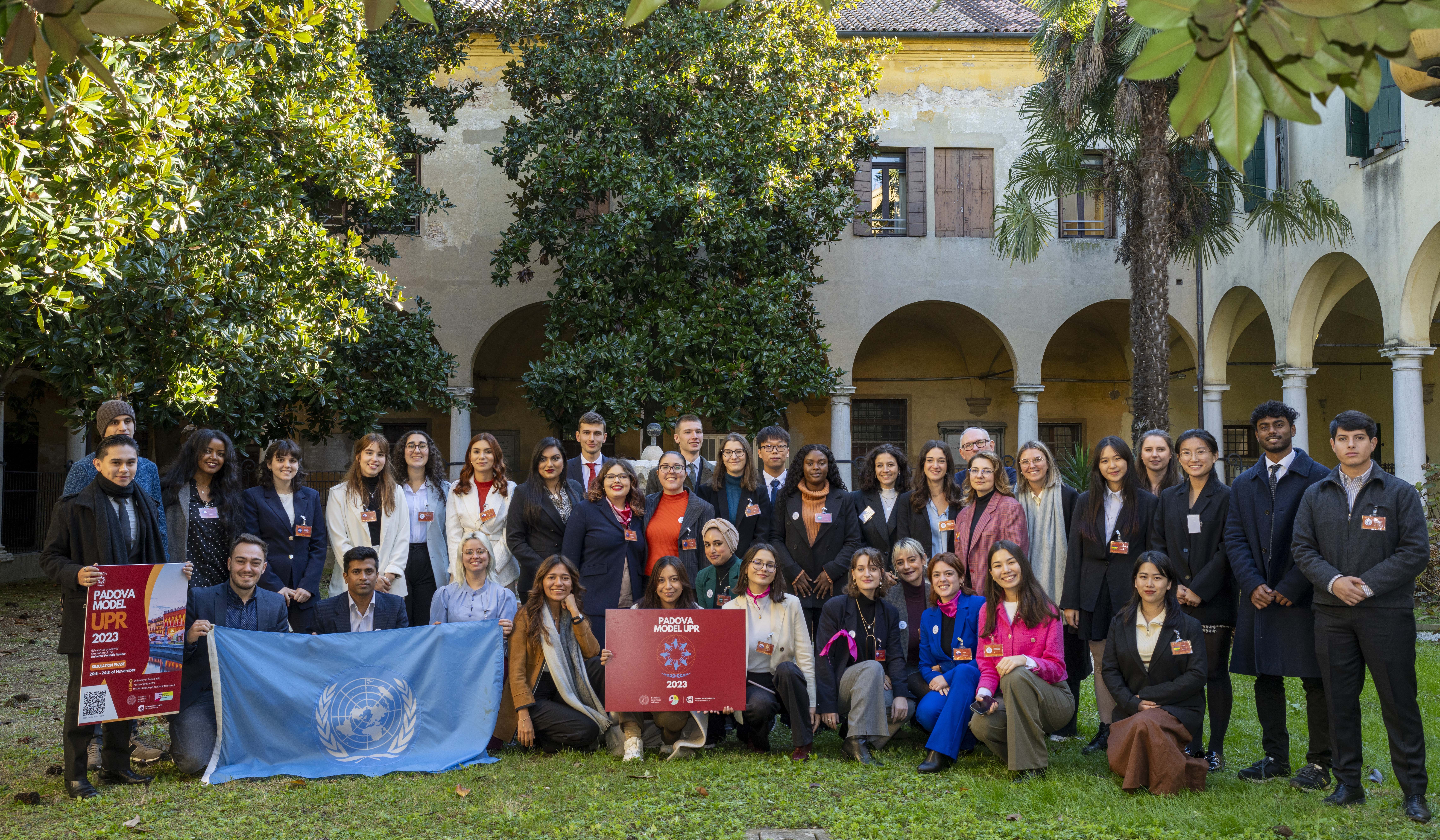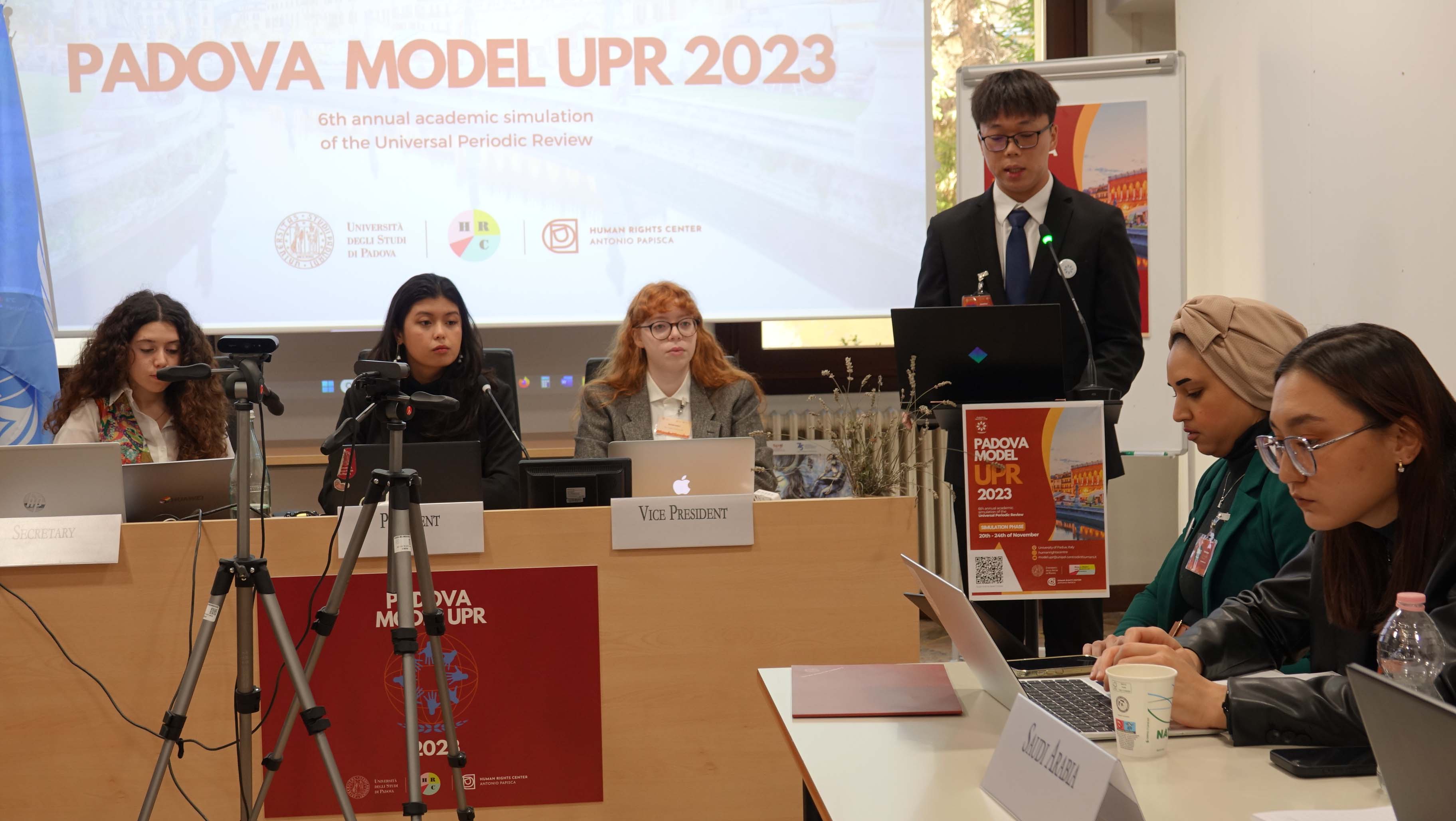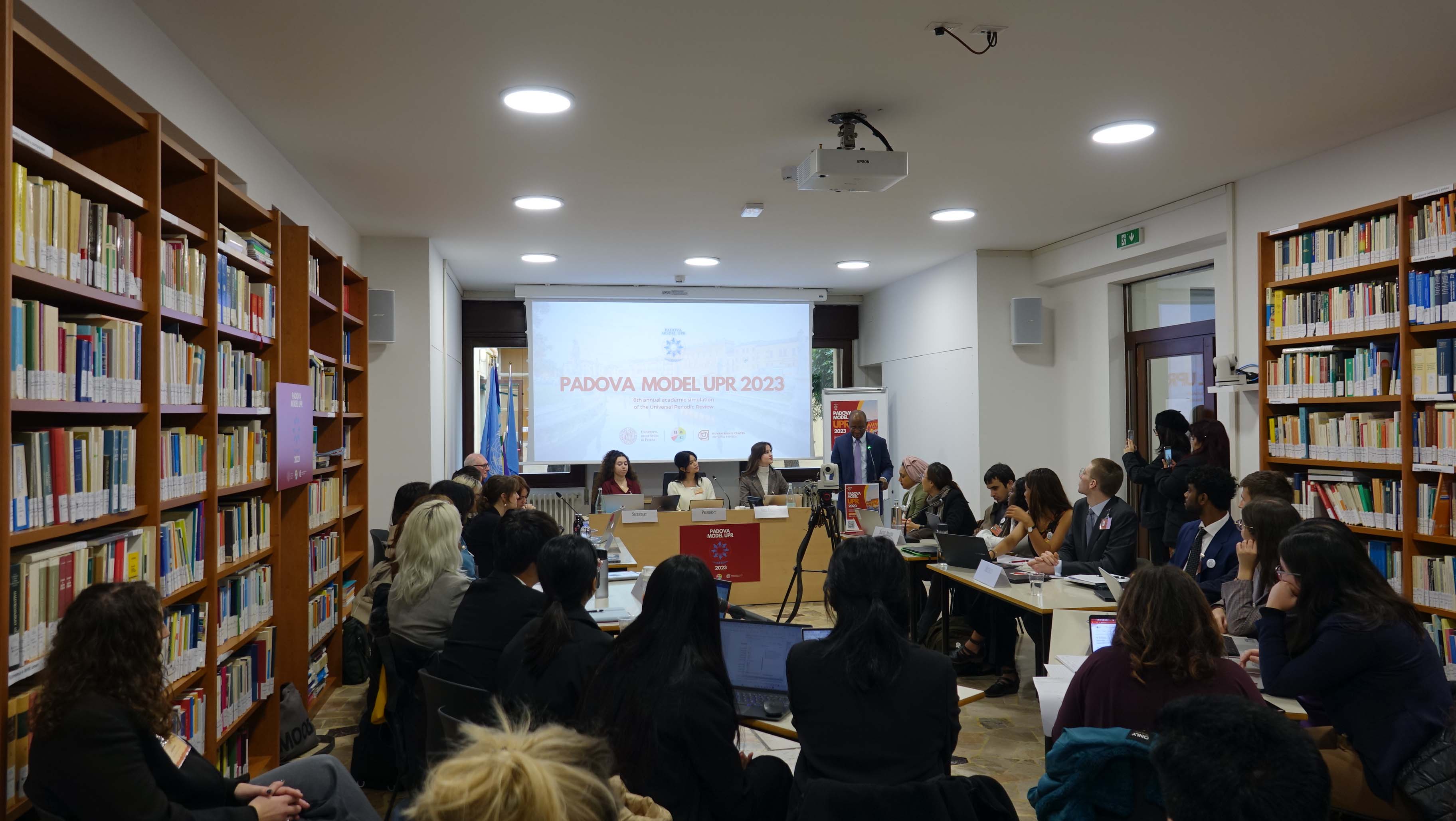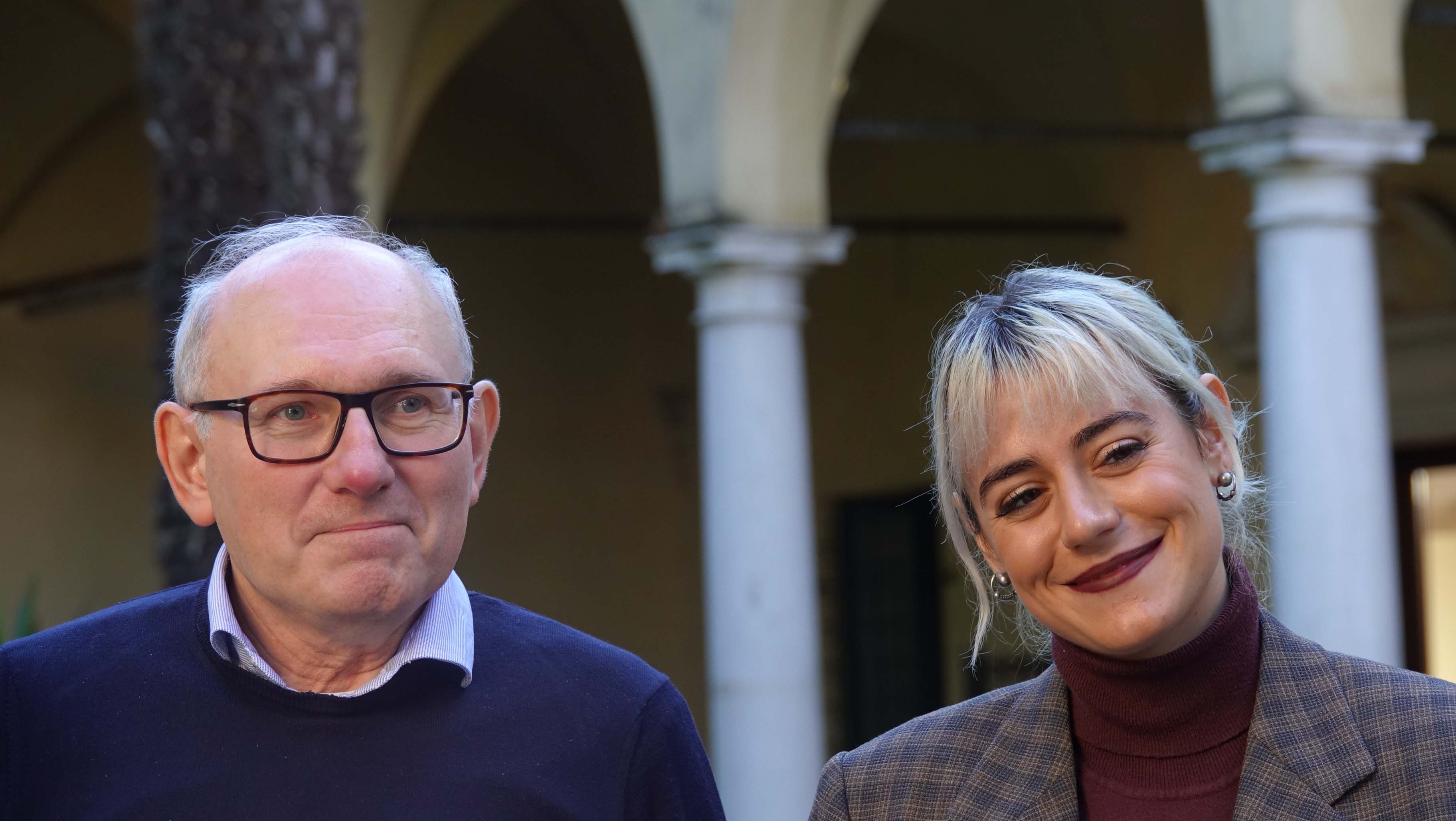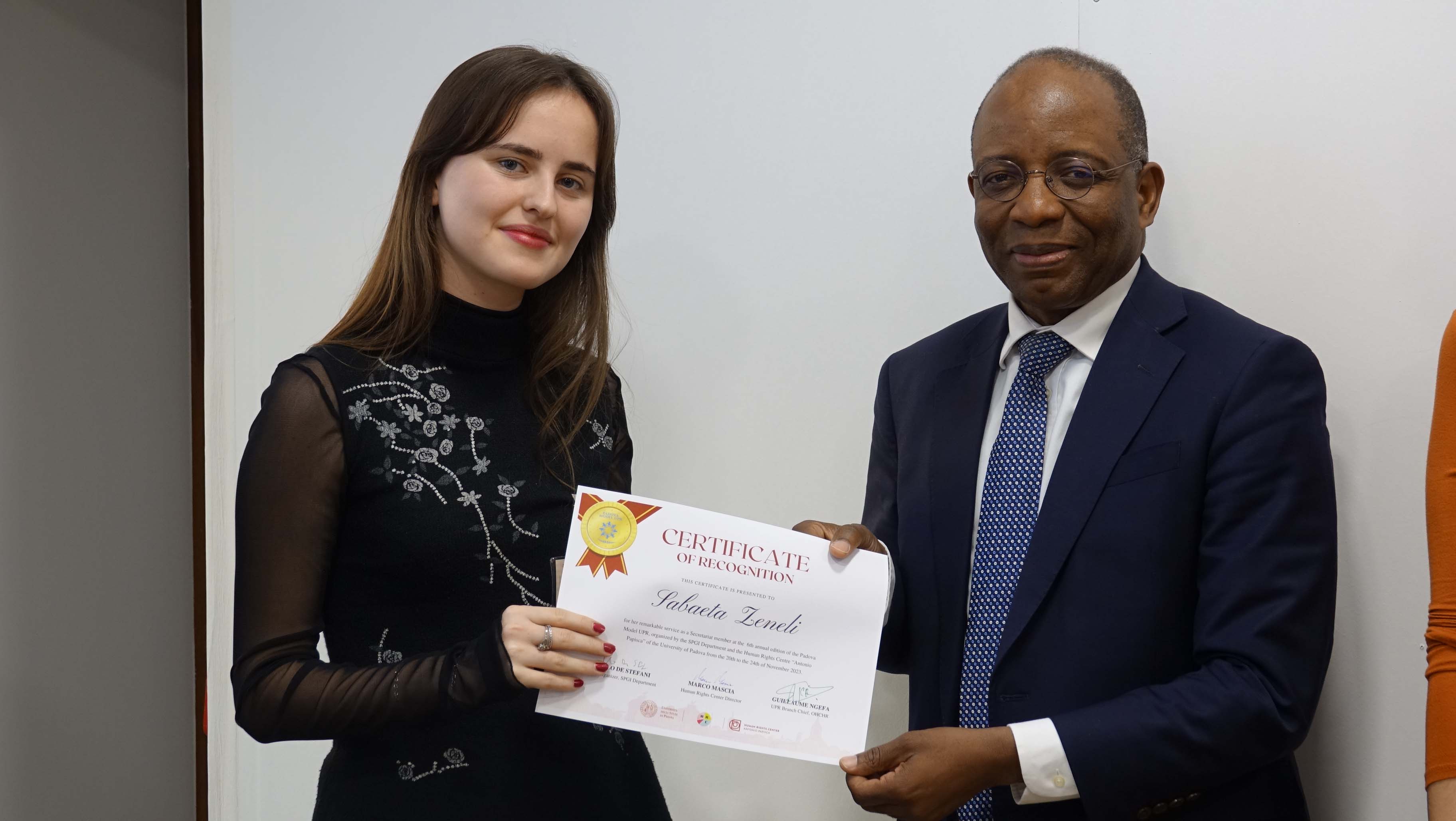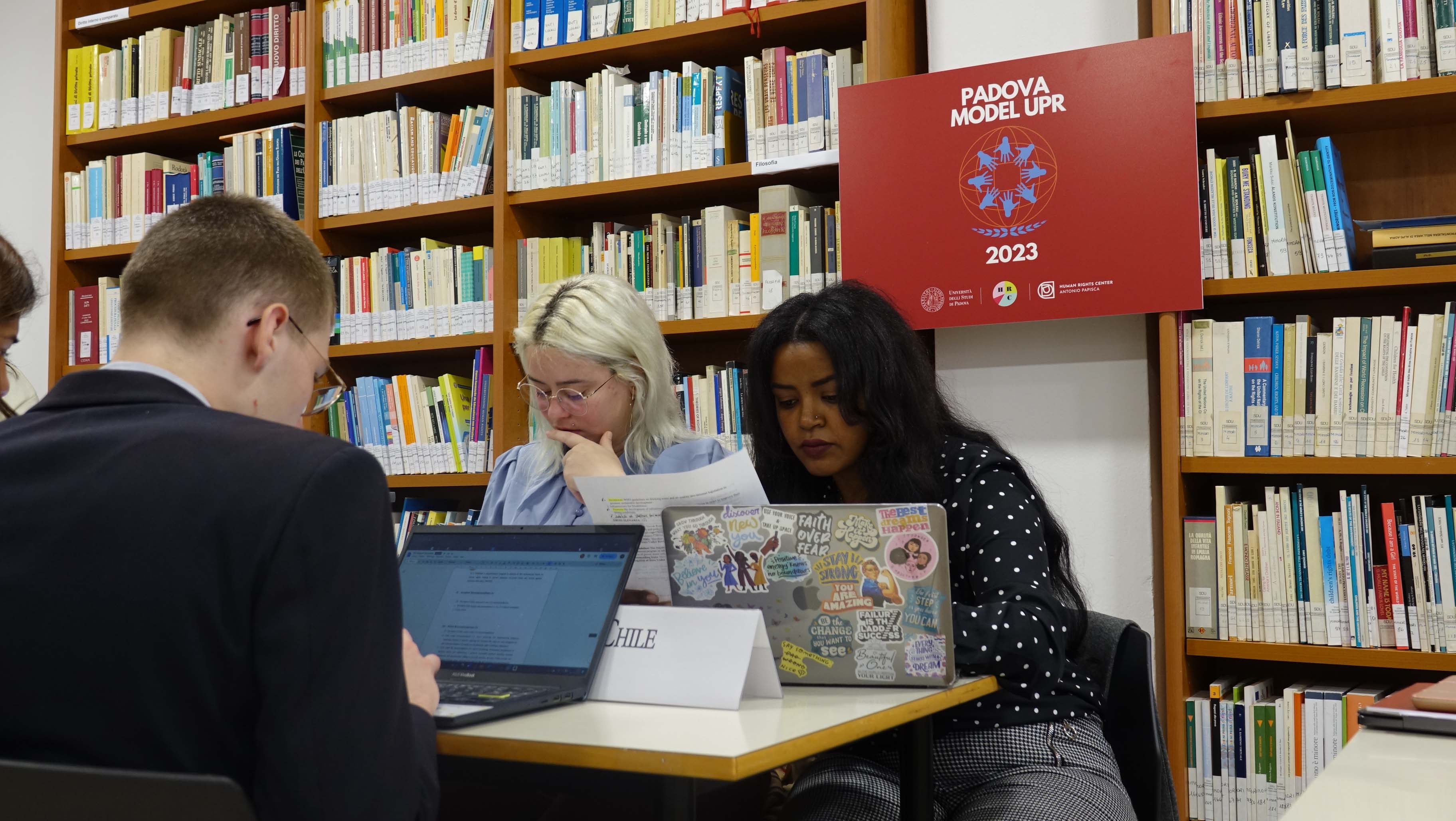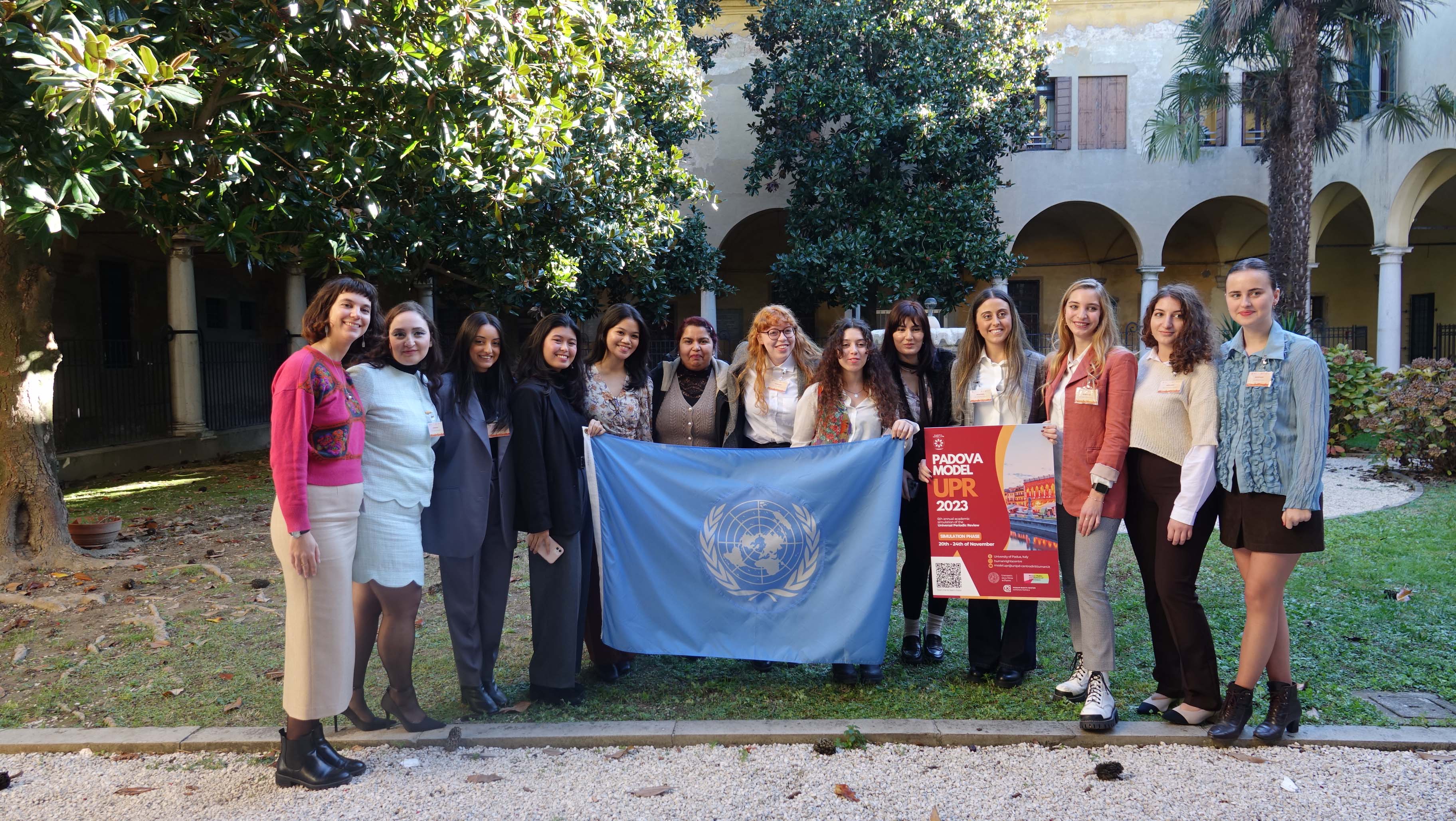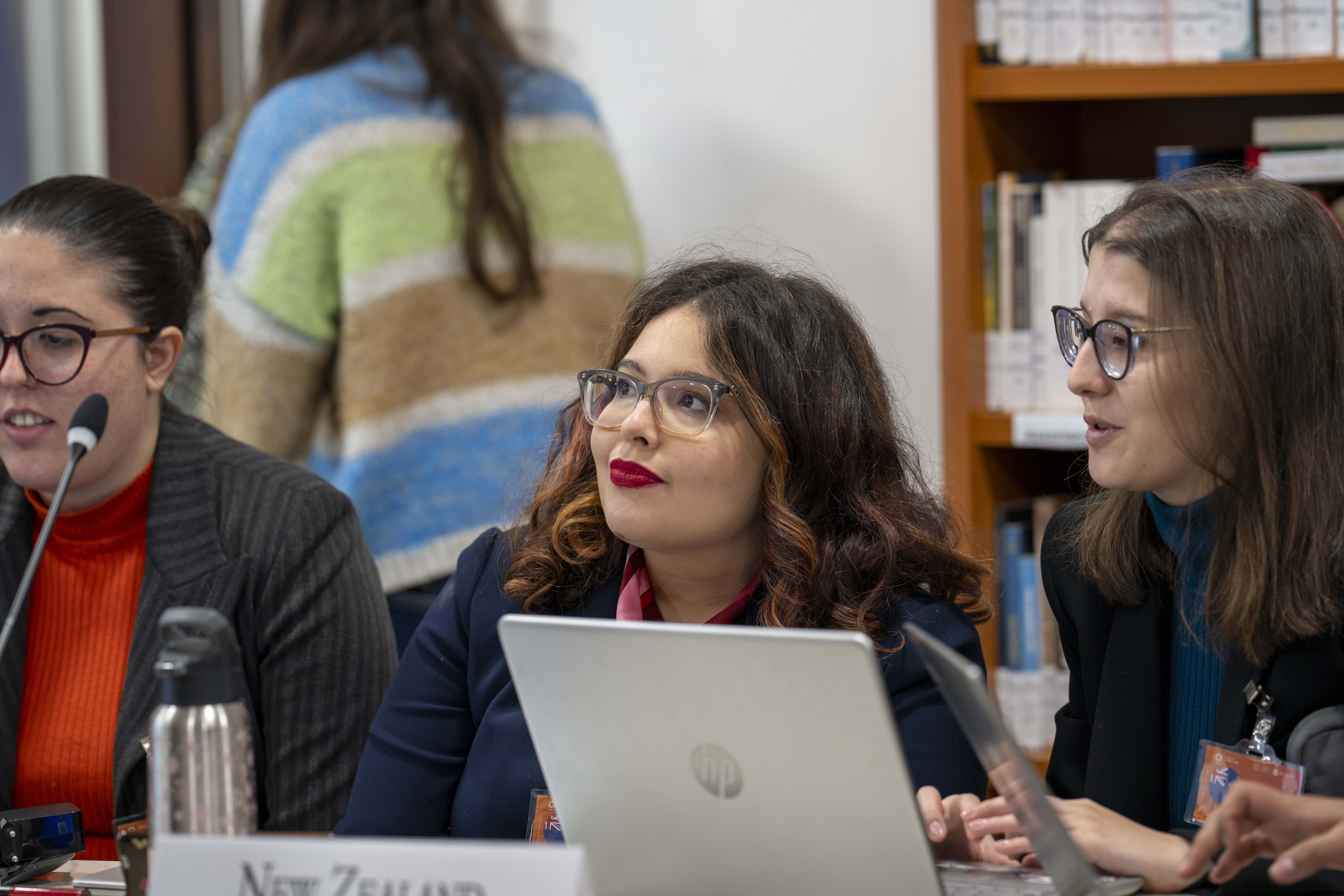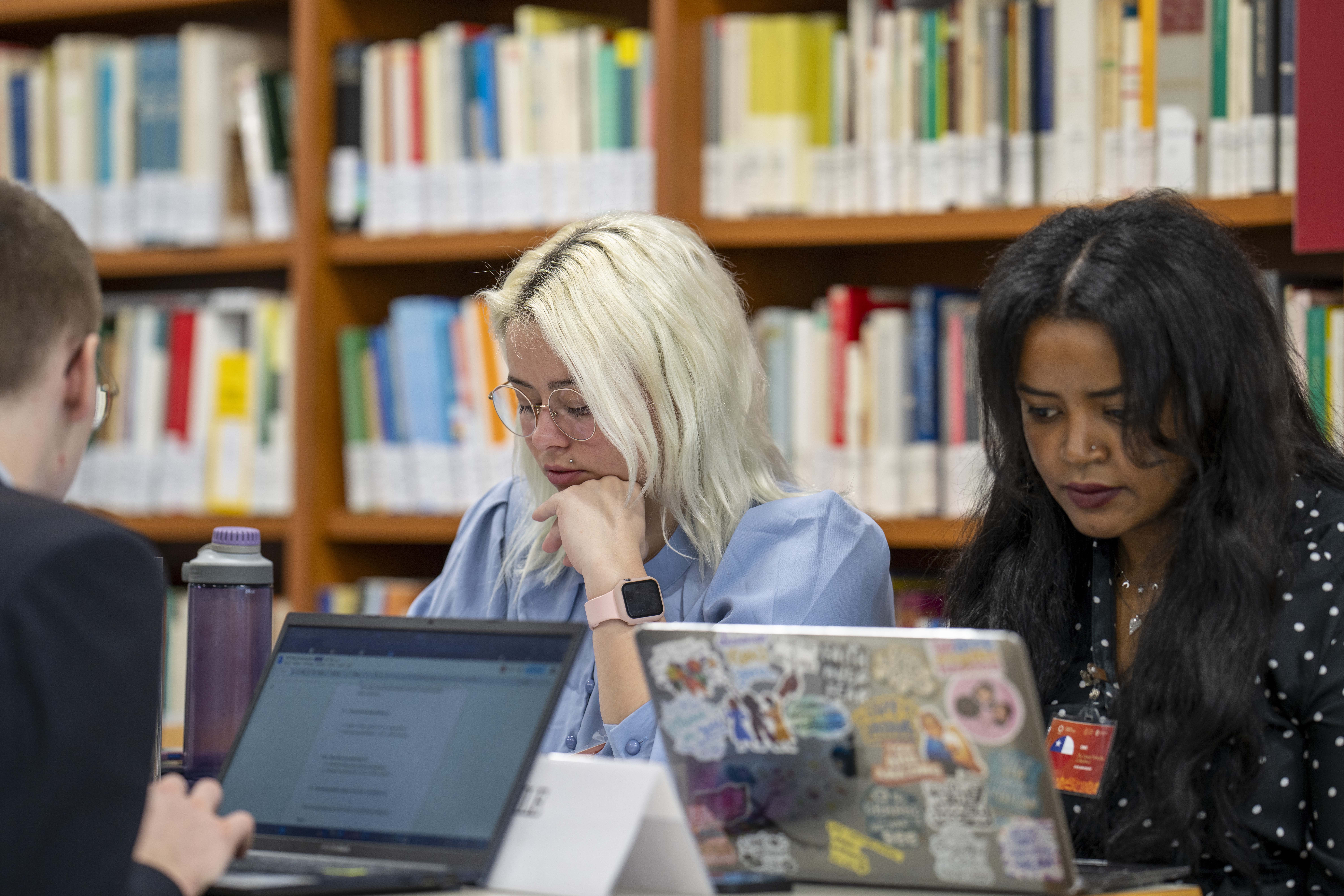The 6th edition of the Padova Model UPR has ended
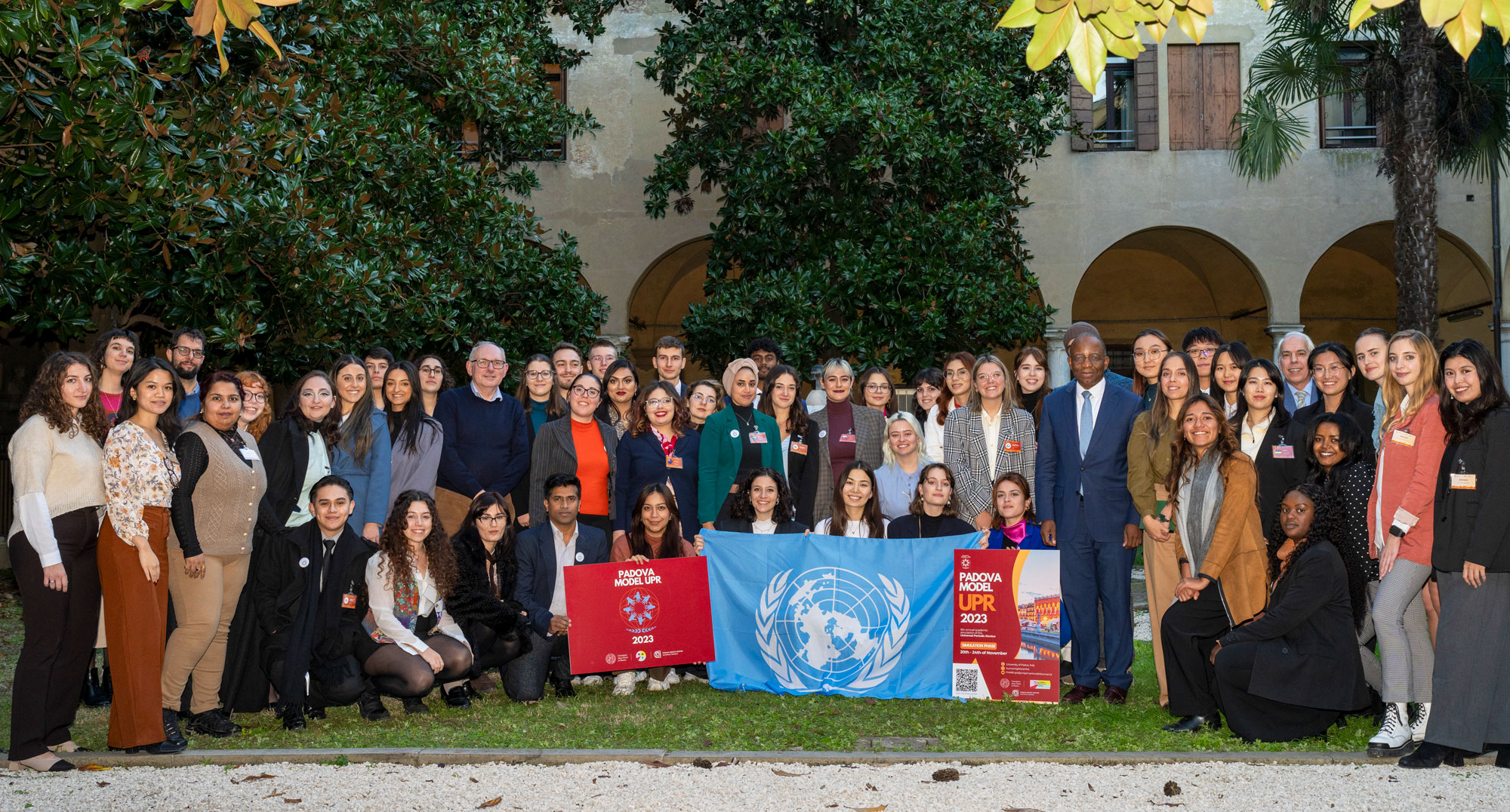
The 6th edition of the Padova Model UPR, held from 20 to 24 November 2022, came to its conclusion. The event was organised by an international team of students and former delegates, with the support of the Human Rights Centre “Antonio Papisca” and the Department of Political Science, Law and International Studies (SPGI) and the Archive "Peace Human Rights" of the University of Padova. The project is run in cooperation with the UPR Branch of the Office of the High Commissioner for Human Rights (OHCHR) of the UN and the NGO UPR Info. This year, 52 international students from 8 universities worldwide participated in the simulation and the training activities associated. A special thanks to Nicoletta Zappile from UPR Info, Kimberly Dhaliwal - Canadian Human Rights Commission, Patrizia Scannella - WILPF, Zuzana Pavlíčková - NHRI Slovakia Representative for attending the training sessions and providing insider tips to the participants. The simulation took place in the new Human Rights Center “Antonio Papisca” headquarters, in Padova.
At the Opening on the 21nd of November, Mr. Guillaume Ngefa, the Chief a.i of the Universal Periodic Review Branch of the Human Rights Council and Treaty Mechanisms Division, OHCHR gave the opening remarks. He underlined how the UPR is a remarkable example of education on human rights as a measure to engage young generations in the promotion and protection of human rights. Since 2018, the UPR branch together with UPR info, has been actively collaborating with the Padova Model UPR with the aim of reinforcing the knowledge, skills and competences of students.
Mr. Guillaume Ngefa, during closing remarks on the last day of the simulation, stated that this was a success, which contributes to human rights education. The OHCHR considers human rights education an essential contribution to the prevention of human rights abuses and violations. He felt really inspired to learn that well prepared and engaged new generations are eager to support the human rights cause. Humanity is going through difficult times so it is important to remember that dignity, freedom and justice must be for all.
After the four-day simulation and more than one month of training and preparation, these are the awarded students.
The Best State Under Review: The award went to the team playing the role of the State delegation of Mauritius composed of students from Guangzhou University: Yang Hongdao and Wang Yilin.
The Best Recommending State: The awarded team played the role of the State delegation of Mexico composed of students from the University of Graz: Paula Urrea-Cardenas and Roméo Savary de Beauregard.
The Best NHRI Delegation: The award went to the team playing the role of the representatives of the Comisíon Nacional De Los Derechos Humanos (México): Roger Alexis Sagbay Enriquez and Javier Sebastian Vire Enriquez, from the University of Azuay.
The Best INGO Delegation: The best team was the one playing the role of the representatives of ECPAT International composed by Gabrielle Duarte Cunha and Aya Maria Khouryi from the University of Padova.
The Best Performing Team According to the Participants: A joint award for the team playing the role of the INGO of World Resource Institute: Andrea Ciceri and Aisha Erdes of the University of South Eastern Norway.
The written submissions and the performances of all participating teams were outstanding this year. Irrespective of who were the awarded players, participants and teams deserve the warmest congratulations.
All participants in the 2023 edition of the Padova Model UPR are invited to set up the new Secretariat team tasked to organise, hopefully, the 2024 Model.
And last but not least, these are the members of the amazing team that in 2022 made the realisation of the Model possible: assisted by Paolo De Stefani, Leah Rea and Sofia Pieretti, they were Alina Aleksandrova, Téa Abastillas, Evelyn Madero, Giulia Marzocchi, Mariam Mestiashvili, Anurada Sen, Dora Silva, Sabaeta Zeneli (Master in Human Rights and Multilevel Governance, University of Padova) Viviana Margarita, Francesca Pezone, Roberta Sommella, Andreina Varone (University of Naples L'Orientale), Emily Benson-Kallman and Marianthi Antoniou (University of South Eastern Norway), Kyra Cabrera (Catholic University of Milan), Federica Di Rocco (University of Graz).


